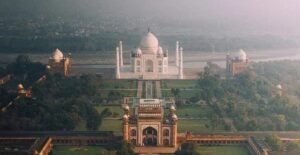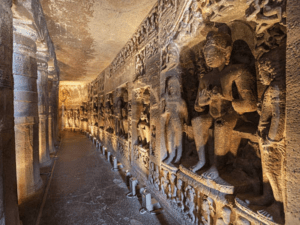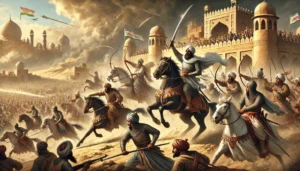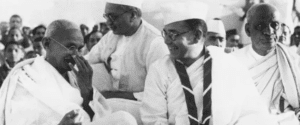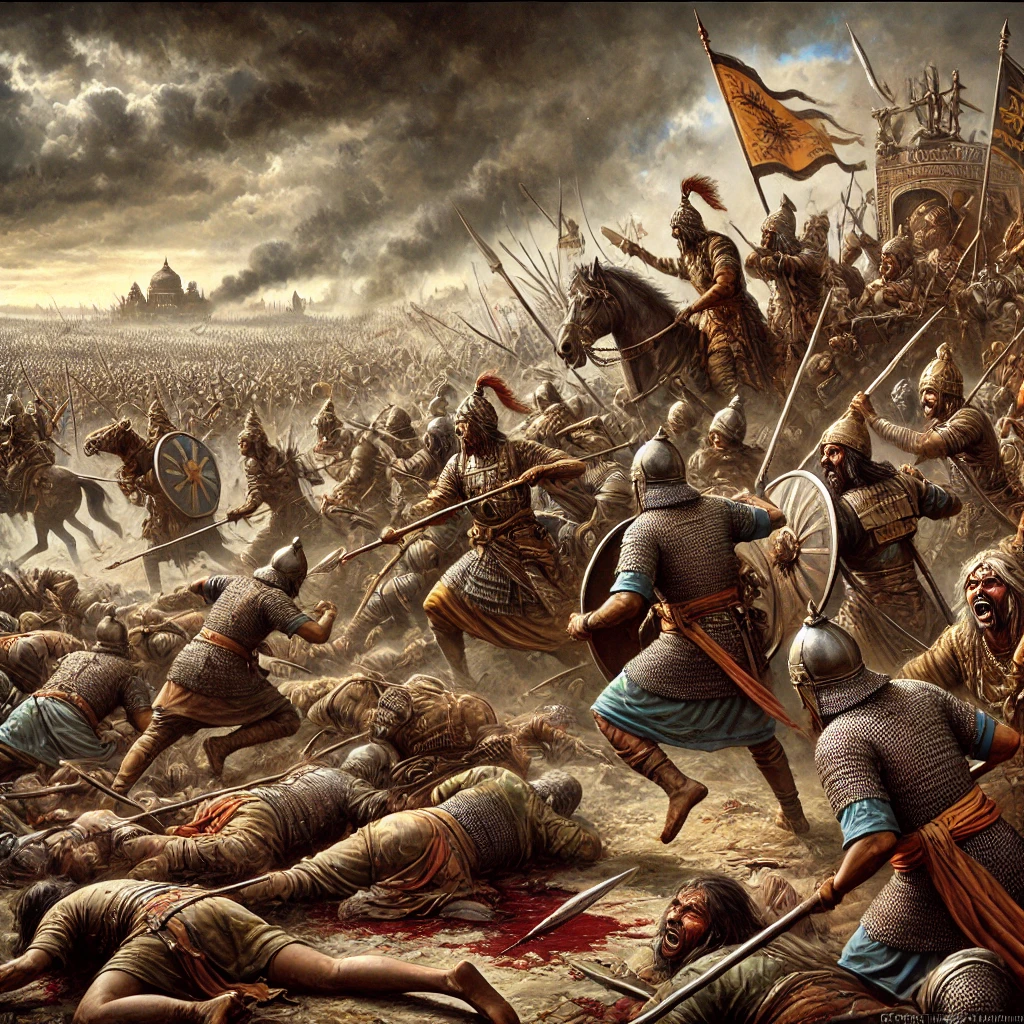
The Kalinga War (c. 261 BCE): Causes & Consequences
The Kalinga War of 261 BCE is remembered as a pivotal moment in ancient Indian history. It was not only a significant military conquest but also a catalyst for one of the most remarkable transformations in the life of an emperor—Ashoka Maurya. The war’s ferocity and its aftermath led Ashoka, the third ruler of the Mauryan Empire, to renounce violence and embrace a path of compassion and non-violence, altering the future course of Indian governance and philosophy. To understand Ashoka’s transformation, however, we must first understand the reasons for the war, the significance of Kalinga, and the circumstances that led to this bloody conflict.
I. The Political Landscape of the Mauryan Empire and the Kingdom of Kalinga
The Expansion of the Mauryan Empire
By the time Ashoka inherited the Mauryan throne in 268 BCE, the empire was already a dominant force in the Indian subcontinent. Established by his grandfather, Chandragupta Maurya, the empire extended over vast territories that included present-day India, Pakistan, Afghanistan, and parts of Iran. Under the reign of Chandragupta and later his son Bindusara, the Mauryan Empire pursued a policy of expansion through military conquest and strategic alliances. When Ashoka came to power, most of the Indian subcontinent was already under Mauryan control—except for Kalinga, a prosperous and fiercely independent kingdom on the eastern coast.
Kalinga: The Last Bastion of Independence
The kingdom of Kalinga, located in present-day Odisha (on the eastern coast of India along the Bay of Bengal), was one of the few regions in India that had resisted Mauryan domination. Kalinga had a long and storied history of independence, known for its strong maritime power, vibrant trade, and cultural sophistication. Its ports were critical to regional trade with Southeast Asia, making it an economically significant region.
Kalinga was ruled by a local dynasty, but historical records do not clearly specify the name of its ruler during the time of the Kalinga War. Some sources mention that the king of Kalinga at the time might have been a ruler from the Mahameghavahana dynasty, but details about the king’s identity remain speculative. What is clear, however, is that the people of Kalinga were fiercely proud of their independence and resisted any attempts at subjugation by foreign powers.
Strategic and Economic Importance of Kalinga
For the Mauryan Empire, Kalinga represented both a strategic and economic prize. Its geographical position along the eastern coast gave it control over important trade routes that connected India with Southeast Asia and other parts of the world. Kalinga’s ports were hubs of maritime commerce, and its economy flourished through trade in goods such as spices, textiles, and precious metals.
The control of Kalinga would provide the Mauryan Empire with not only access to lucrative maritime trade but also a strategic military advantage. With Kalinga in his grasp, Ashoka could effectively consolidate his empire’s control over the entire eastern region, securing a continuous dominion from the north to the south of India. This would also protect his empire from potential naval threats and ensure that the wealth of trade flowed directly to the Mauryan coffers.
II. The Build-Up to the Kalinga War
Ashoka’s Ambition for Conquest
Ashoka’s rise to power was not without internal strife. After his father, Bindusara, passed away, Ashoka faced significant competition from his brothers and other members of the royal family for the throne. According to historical and semi-mythical accounts, Ashoka emerged victorious in this brutal succession struggle, reportedly killing several of his brothers to secure his position as emperor. This early phase of violence and political maneuvering shaped Ashoka into a ruthless and ambitious ruler, deeply committed to consolidating his power.
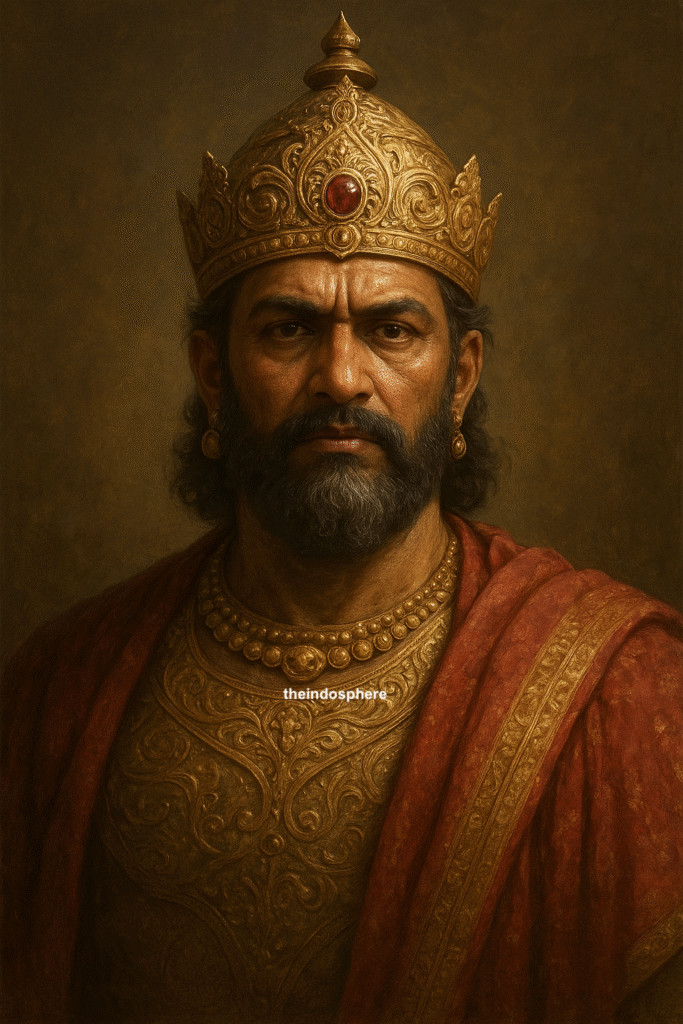
Ashoka’s ambition, combined with the Mauryan policy of expansion, naturally led him to target Kalinga. The fact that Kalinga had successfully resisted subjugation by the Mauryan Empire for so long was a source of frustration for the dynasty. For Ashoka, conquering Kalinga would be both a symbolic and practical achievement, cementing his legacy as the ruler who completed the unification of India under Mauryan rule.
Kalinga’s Resistance to Subjugation
The people of Kalinga had a long tradition of independence, and they were known for their martial prowess. Despite being a relatively small kingdom compared to the Mauryan Empire, Kalinga had developed a formidable defense force. Its soldiers were well-trained, and its strategic location along the coast meant that it had access to naval resources as well. Kalinga’s resistance was not just a political stance but also a matter of pride for its people, who valued their autonomy and way of life.
In the decades leading up to the war, Kalinga’s refusal to submit to Mauryan hegemony created a tense standoff. Ashoka’s decision to invade Kalinga was likely driven by both frustration with the region’s defiance and a desire to secure the full control of the subcontinent.
III. The Kalinga War: Bloodshed and Devastation
The Scale of the Battle
In 261 BCE, Ashoka led his army, reportedly one of the largest in the world, to invade Kalinga. The Kalingans, though significantly outnumbered, fought bravely to defend their homeland. The battle was fought on the banks of the Daya River, near modern-day Bhubaneswar.

The conflict was intense and brutal. According to historical records and Ashoka’s own inscriptions, the Kalinga War resulted in one of the largest death tolls in Indian history. Approximately 100,000 soldiers and civilians were killed, 150,000 were captured and deported, and countless others perished due to famine, displacement, and disease that followed the war.
The devastation of Kalinga was total, and the once-thriving kingdom was reduced to rubble. Ashoka had successfully conquered the territory, but at a great moral cost.
Ashoka’s Guilt and Realization
Despite his military success, Ashoka was deeply disturbed by the aftermath of the war. He personally witnessed the suffering of the people in Kalinga, hearing the cries of women and children who had lost their families and homes. The sight of the dead and dying on the battlefield filled him with remorse and shame.
In one of his famous edicts, Ashoka expresses his sorrow over the destruction of Kalinga:
“A hundred thousand people were killed, several times that number were made captives, and almost the same number died… I am deeply pained by what happened in Kalinga.”

This marked a turning point in Ashoka’s life. The immense human cost of the war led him to question the morality of violence and conquest. He realized that the path of war only led to suffering and destruction, not true greatness.
IV. Ashoka’s Transformation: From Conqueror to Compassionate Ruler
The Embrace of Buddhism
Ashoka’s guilt and regret over the bloodshed in Kalinga set him on a path of personal transformation. Seeking solace and guidance, Ashoka turned to Buddhism, a religion that was gaining influence in India at the time. The teachings of the Buddha, particularly the principles of non-violence (ahimsa) and compassion (karuna), offered Ashoka a new way of viewing the world and his role as a ruler.

While Ashoka had been exposed to Buddhism earlier, it was after the Kalinga War that he became a devout follower. His conversion to Buddhism was not just a personal shift in belief but also a philosophical change that reshaped the entire governance of the Mauryan Empire.
The Promotion of Dhamma
In the years following the war, Ashoka renounced violence and adopted the principles of Dhamma (the Prakrit form of Dharma), a moral code that emphasized righteousness, compassion, and respect for all living beings. Ashoka’s Dhamma was not a religious doctrine but a universal code of ethics that could be applied to all people, regardless of their religion or social status. It encouraged non-violence, tolerance, social justice, and welfare for the poor and marginalized.
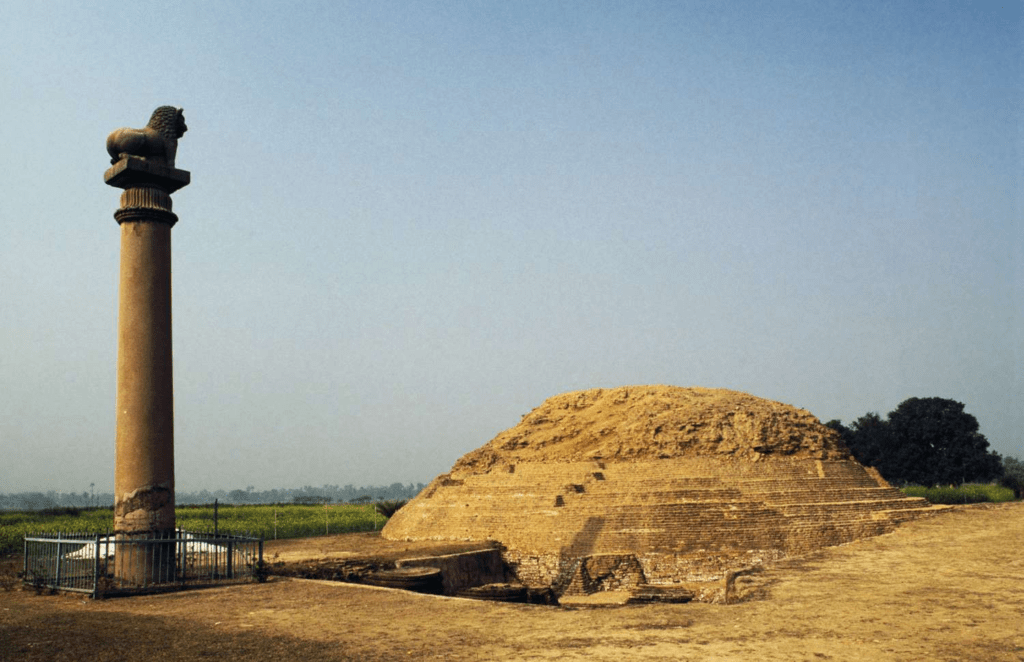
Ashoka’s famous Rock and Pillar Edicts, inscribed across his empire, communicated these new values. In these inscriptions, Ashoka expressed his desire for peace, harmony, and the welfare of his people. He emphasized the importance of justice and fair treatment and urged his officials to govern with kindness and compassion.

V. The Legacy of the Kalinga War and Ashoka’s Rule
A Model of Ethical Governance
Ashoka’s transformation from a ruthless conqueror to a compassionate ruler set a powerful example for future generations. His reign, particularly in the years after the Kalinga War, became a model of ethical governance. Ashoka focused on the welfare of his subjects, building hospitals, schools, roads, and wells. He appointed officials known as Dhamma Mahamatras to ensure that his policies of compassion and justice were implemented throughout the empire.

The Spread of Buddhism
Ashoka also played a pivotal role in spreading Buddhism beyond India. His support for Buddhist missionaries helped the religion spread to Sri Lanka, Southeast Asia, Central Asia, and eventually China. This cultural and spiritual diffusion left an enduring mark on world history, and Buddhism remains one of the world’s major religions today.
Conclusion
The Kalinga War was a turning point in the life of Ashoka Maurya and in the history of India. What began as a ruthless military conquest ended in a profound transformation of one of history’s greatest emperors. Ashoka’s journey from violence to compassion reshaped not only his own life but also the future of governance in India and the spread of Buddhism across Asia. His story serves as a reminder of the power of empathy, introspection, and the possibility of redemption, even in the wake of immense destruction.

